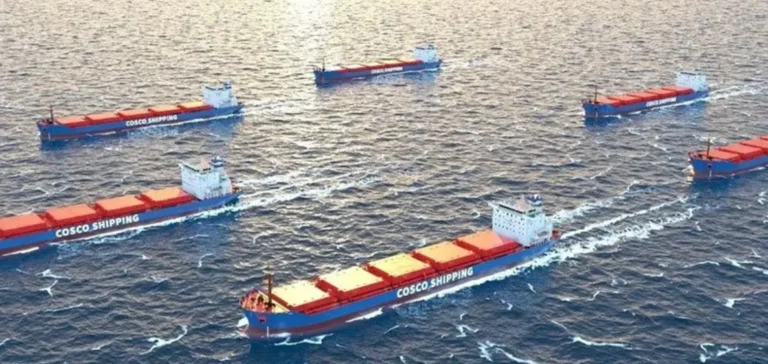Anglo-Australian mining group BHP has signed charter contracts with COSCO Shipping Bulk Co., Ltd., a subsidiary of the Chinese group COSCO Shipping Group, for two Newcastlemax bulk carriers that will use ammonia as fuel. Delivery of these vessels, among the first in the world to operate using this alternative fuel, is expected in 2028, with their primary use being to transport iron ore from Western Australia to Northeast Asia.
Anticipated emission reductions
According to technical specifications, these two new dual-fuel bulk carriers will be able to reduce greenhouse gas (GHG) emissions by 50% to 95% per voyage compared to ships using conventional fuel. The exact achievement of these reductions will depend on the quality and source of the ammonia used. The charter contracts will have an initial term of five years.
This operation is part of commitments made by BHP under the international First Movers Coalition (FMC) initiative, which plans that 10% of products shipped via its chartered vessels will operate using zero-emission fuels by 2030. BHP indicated it selected COSCO Shipping following a rigorous tendering process evaluating safety, technical and commercial criteria.
Long-standing strategic partnership
COSCO Shipping and BHP have maintained a close partnership for several years in dry bulk maritime transport activities. Ji Lin, Vice President of COSCO Shipping, specified that these new contracts are part of the evolving collaboration between the two companies, notably within the context of the green maritime corridor between Australia and China.
Emma Roberts, Vice President in charge of Maritime activities and supply chain at BHP, indicated that this investment will help encourage the use of ammonia as marine fuel within the maritime industry. BHP is currently continuing discussions with various industry players to finalize an ammonia bunkering plan for these vessels before they enter service scheduled for 2028.
Global-scale industrial development
The order for these two bulk carriers represents a new step for BHP, which has already chartered five vessels running on liquefied natural gas (LNG) and adopted biodiesel use on certain maritime routes. The stated objective of the group is to stimulate global demand for alternative fuels, in order to encourage the maritime sector to adopt these new technologies.
According to COSCO Shipping, these vessels will have a cargo capacity of 210,000 deadweight tonnes (dwt), a size suitable for large-scale transport of raw materials such as iron ore. Both companies intend to continue collaborating with regulatory authorities and industrial suppliers to facilitate access to low-emission marine fuels across the maritime transport sector.






















